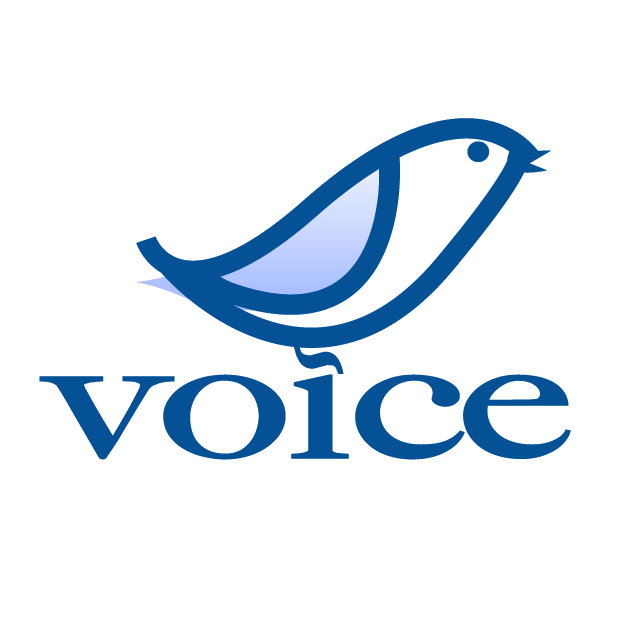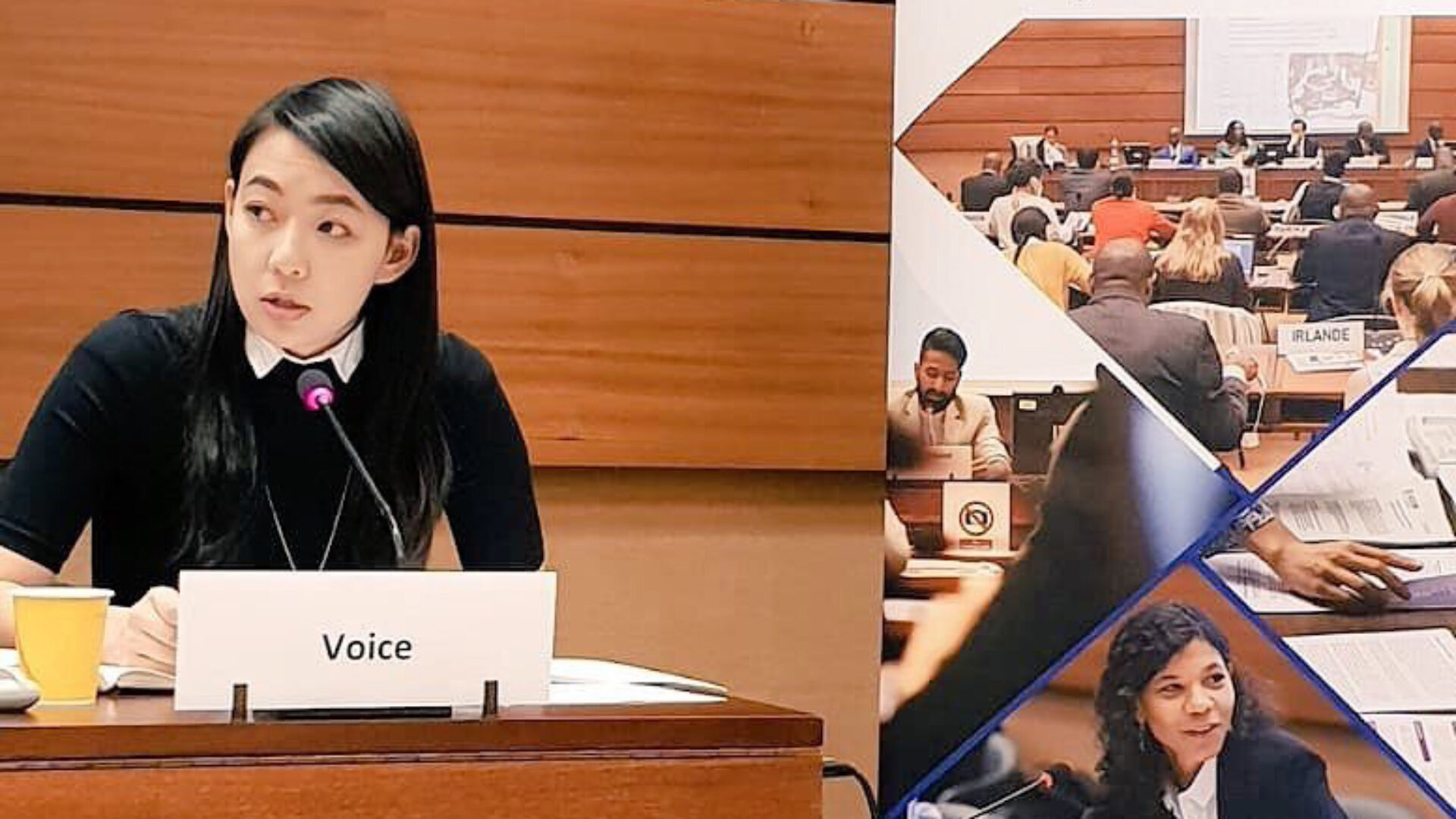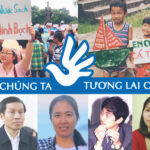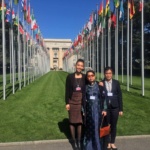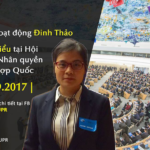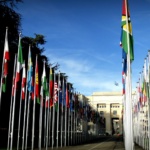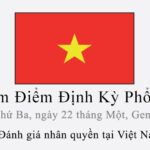VIETNAM: ‘We hope UN member states will listen to civil society’
Ahead of the Universal Periodic Review (UPR) of Vietnam’s human rights record at the United Nations (UN) Human Rights Council on 22 January 2019, CIVICUS speaks to Anna Nguyen from VOICE, a civil society organisation that promotes civil society development and advocates for human rights, including refugee protection, and the rule of law in Vietnam. Founded in 2007, VOICE’s mission is to empower individuals to build a strong, independent and vibrant civil society.
A Vietnamese-Australian lawyer, Anna Nguyen is VOICE’s Director of Programs. She oversees a training programme for Vietnamese activists in Southeast Asia, a refugee resettlement programme in Thailand and advocacy efforts, including at the UN, to raise awareness of the human rights situation in Vietnam.
Along with VOICE, Civil Society Forum, Human Rights Foundation and VOICE Vietnam, CIVICUS made a UPR submission on to the Human Rights Council in July 2018.
What is the current situation for human rights and civil society in Vietnam?
The human rights situation in Vietnam is dire. While the freedoms of association, peaceful assembly and expression are supposedly protected by the constitution, they are not respected in practice. In 2018, 88 human rights defenders (HRDs) were arrested, and at least 194 remain in prison for peacefully exercising their civil and political rights. This is a staggering number and surely shows that the government of Vietnam is doing as much as it can to stifle political dissent.
In addition, reprisals are a big factor. Some HRDs who have been involved in the UPR process have faced difficulties upon returning home to Vietnam, including the confiscation of their passports and continuous surveillance and harassment. Reprisals are just another tactic that the government uses to stifle the growth of a civil society movement and punish civil society for peacefully raising its voice about the state’s failure to meet its human rights obligations.
What are some of civil society’s key recommendation to states participating in the upcoming review of Vietnam at the Human Rights Council?
Civil society is calling on states to urge Vietnam’s government to amend the Penal Code to ensure that ambiguous provisions relating to national security – notably articles 79 (109), 87 (116), 88 (117), 89 (118), 91 (121), 257 (330) and 258 (331) – are clearly defined or removed so they cannot be applied in an arbitrary manner to stifle legitimate and peaceful dissent and the freedom of expression.
We also want states to recommend that the government amend or repeal legislation specifically related to the freedoms of expression and information, and related to privacy and surveillance, in line with international standards such as articles 17, 19 and 20 of the International Covenant on Civil and Political Rights. We are particularly concerned about the Press Law, the Law on Publications and the Cybersecurity Law, as well as about Decree No. 72/2013/ND-CP on the management of internet services and information and Decree No.174/2013/ND-CP, which imposes penalties for the violation of post, telecommunication, information technology and radio regulations.
State representatives at the Human Rights Council should also call on Vietnam to ensure that civil society activists, HRDs, journalists and bloggers are provided with a safe and secure environment in which to carry out their work. They should also conduct impartial, thorough and effective investigations into all cases of attacks on and harassment and intimidation against them and bring the perpetrators to justice.
Finally, there should be recommendations to ensure the independent and effective investigation of and implementation of remedy for arbitrary detention and physical or mental abuse by the state, with special attention to the protection of HRDs. Specifically, the government of Vietnam should be urged to release, unconditionally and immediately, all HRDs, including journalists and bloggers, detained for exercising their fundamental rights to the freedoms of association, peaceful assembly and expression, and drop all charges against them.
What would you like to see come out of the UPR review?
We hope that UN member states in the Human Rights Council will listen to civil society and our recommendations, and that a diverse range of civil society’s human rights concerns, including the rights of women, young people and LGBTQI people, and civil and political rights, will be addressed by strong recommendations – by recommendations that are specific, measurable, achievable, realistic and time-bound. This will allow civil society groups and other stakeholders to monitor easily whether the government of Vietnam follows through with their implementation.
We would also like Vietnam to have more dialogue with unregistered and independent groups, to ensure there is a balanced representation of civil society in national dialogues for future reviews. This will strengthen the impact of the UPR process and improve the integrity of the mechanism.
What are you plans following the UPR review, and what support is needed from the international community and international civil society?
VOICE will raise awareness of the commitments made by Vietnam through translation and dissemination among the public, media, parliamentarians, embassies and civil society.
We will make sure to follow up on the recommendations made to Vietnam to ensure they are being followed through by holding regular stakeholder meetings, including with other civil society groups and embassies in Hanoi. We will continue to update the states that have made specific recommendations during advocacy meetings, to let them know whether progress has been made and urge them to put some additional pressure if it has not.
We would like the international community, including international civil society organisations, to keep up the pressure so the government of Vietnam follows through with the recommendations they have received, and to provide a platform for civil society groups and HRDs to raise awareness about the state’s progress or lack of progress in human rights.
Source from CIVICUS. VIETNAM: ‘We hope UN member states will listen to civil society’ .
#UPR
#VietnamUPR
#VietnamUPR2019
